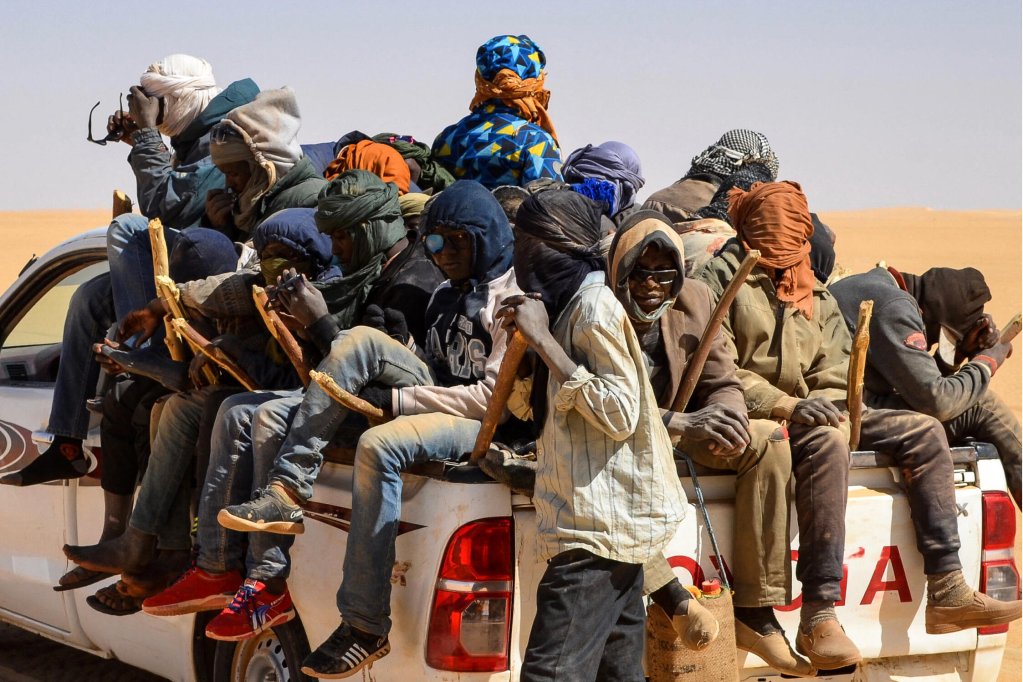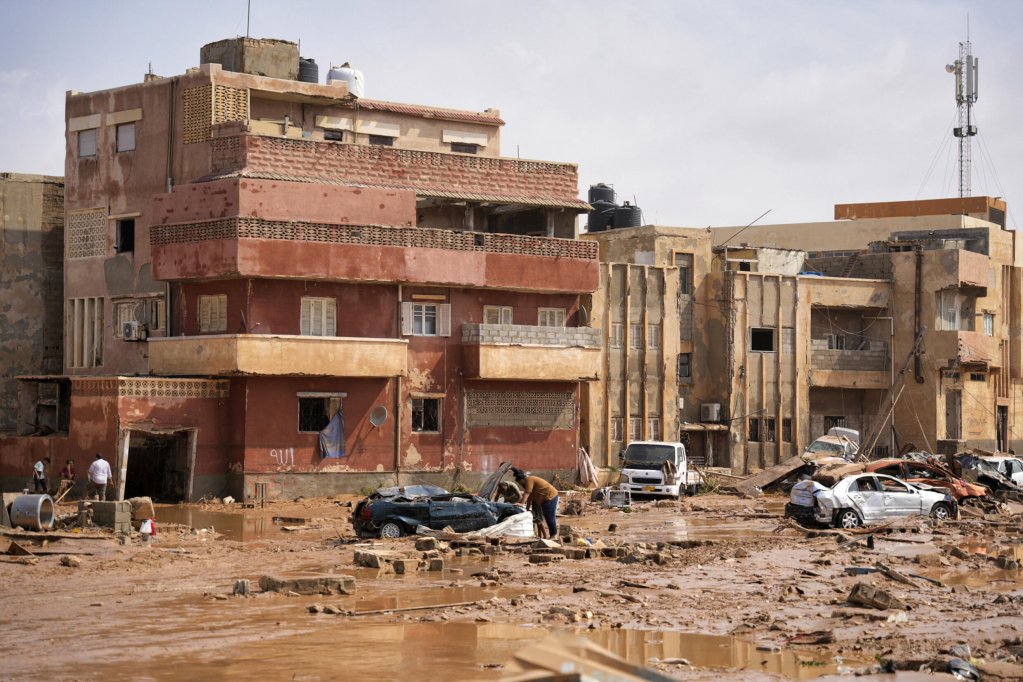The announcement comes after Britain’s home office minister concluded a visit to Tripoli with representatives from the European Union, the United Nations, France, Germany, and Malta.
The United Kingdom will pay Libya £1 million (1.17 million euros) to stop people from entering Europe by crossing the Mediterranean Sea and instead repatriate them to their countries of origin, the German news agency dpa reported.
The announcement comes after Michael Tomlinson, Britain’s home office minister, concluded a visit to Tripoli last week with representatives from the European Union, the United Nations, France, Germany, and Malta. Tomlinson is the first UK home office minister to visit the North African country in decades.
"As well as supporting survivors of trafficking, the funding will assist migrants who choose to return to their countries of origin. These voluntary returns are one of the most fundamental tools at our disposal for driving down migration numbers globally," Tomlinson said in a statement published on his website.
The International Organization for Migration (IOM) defines voluntary returns as the "assisted or independent return to the country of origin, transit or another country based on the voluntary decision of the returnee."
Launching pad for entry to Europe
The previous year saw record-high arrivals in Europe from North Africa, with over 150,000 migrants reaching Italy by sea. Libya, a major departure point for Mediterranean-bound migrants, saw nearly 40,000 arrivals in Europe.
"The new funding I announced is only the latest step in our drive to bolster international efforts, building on our new deal with Frontex, the European Border and Coast Guard Agency, and agreements with other countries including Vietnam and Albania," said Tomlinson in an article he wrote for British newspaper The Telegraph.

From file: A group of migrant men mainly from Niger and Nigeria sit in the back of a pickup during a journey across northern Niger’s Air desert towards the Libyan border post of Gatrone, January 22, 2019 | Photo: Souleymane Ag Anara/AFP
Last month, the UK also announced a new working arrangement with Frontex, the European Border and Coast Guard Agency to crack down on people smuggling networks by strengthening Frontex's border agency capabilities.
"This isn’t just Libya or North Africa; it isn’t just Europe. It is a global challenge. And we are getting on with the job. We will do whatever it takes to secure our borders, reform our immigration system, and stop the boats," Tomlinson concluded.
In addition to Libya, the UK has pledged a £3 million deal with Turkey to construct a new center to coordinate joint operations between the UK and the Turkish border patrol. Tukey is reportedly the starting point for 90 percent of the small boats attempting to enter the UK by crossing the English Channel.
Last year, UK Prime Minister Rishi Sunak penned similar bilateral agreements with Belgium, Bulgaria, and Serbia.
Read more: UN: Libya must end arbitrary detention and mass expulsion of migrants
Outsourcing migrant oppression
The UK and Libya alliance comes in the wake of media reports that the humanitarian rescue group SOS Humanity 1 clashed with the Libyan coast guard while conducting a rescue mission earlier this month. SOS Humanity alleged that the Libyan Coast Guard had fired live bullets and used violence.
Human rights groups have widely criticized Europe for outsourcing their migration policies to African countries, particularly those with a record of human rights abuses such as Libya.
In January, Human Rights Watch released a report that revealed the dire conditions faced by migrants and asylum seekers in Libya which include torture, forced labor, and sexual assault.
After a fact-finding mission in Libya last year, the UN Human Rights Council declared that there are "reasonable grounds to believe that crimes against humanity have been committed against Libyans and migrants throughout Libya since 2016."
There are an estimated 600,000 migrants stranded in Libya according to the International Organization for Migration (IOM).
Read more: UN: Crimes against humanity committed in Libya
Failed state
Libya spiraled into chaos after Muammar Gaddafi's removal in 2011. Libya plunged into a failed state with two rival political administrations controlled by militias.
Since then, Libya has faced persistent condemnation from human rights organizations for widespread human rights violations and unchecked actions by the government.

In September, cyclone Daniel pummeled northeast Libya causing massive flooding that killed more than 4,000 people and displacing more than 40,000 others, including many migrants.
